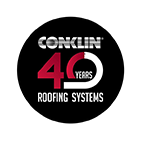
Various factors lead to high energy bills in a commercial building- the type of construction, construction material, building architecture, type of insulation, and building damages like holes, gaps, and air leaks among others. Up to 40% of a building’s energy bill is caused by air infiltration which can be moderated with the use of spray foam insulation. The foam acts as insulation and an air barrier reducing the gaps that allow air to escape. In fact, the US EPA (Environment Protection Agency) estimates that spray foam insulation saves up to 20% of energy bills monthly. There are three types of SPF applied to different areas- high-density, low-density and medium density. Reach us at 701-693-5765 for all your spray foam insulation needs in Fargo, ND.
High-Density SPF

This kind is applied to roofs and other exterior applications as it offers high insulation and strength. High-density SPF has a dense structure hence does not expand as much as the medium and low-density SPF. This SPF needs more material to insulate and cover space. It has thermal resistance properties which help reduce energy costs over the roof’s lifetime. High-density SPF also protects a surface from air and water infiltration while strengthening the structure it is applied. Additionally, the bond created by the SPF increases the building’s resistance to strong winds which consequently increases a roof’s tolerance during strong winds.
Medium-Density SPF
This SPF is used for unvented attic applications, continuous insulation and as an interior wall cavity fill. Medium-density SPF is a closed-cell spray foam hence ideal for surfaces that need a high R-value insulation per inch. The foam also acts as a water, vapor and air barrier and aids in noise reduction. It offers low vapor permeance hence is not affected by moisture during windy rains or high humidity.
Low-Density SPF
It is also known as an open-cell foam and is applied to the interior wall cavity to provide an air-sealing barrier and continuous insulation. Low-density SPF has an open-cell structure that allows flexibility to the hardened foam and remains soft after application. The large, open-cell structure increases the ability of the SPF to continue providing insulation as the structure settles and shifts over time. However, while it acts as an air-barrier, low-density SPF is permeable to moisture and vapor thus only used to seal wall cavities during construction. It also offers heat insulation and seals airflow caused by plumbing vents, wiring holes, cracks, seams, and joints.
Frueh Construction professionals in Fargo, ND are vetted and well-equipped to apply different types of Spray Foam Insulation (SPF) on commercial buildings. You just need to reach us at 701-693-5765 to discuss more details and schedule an appointment.


